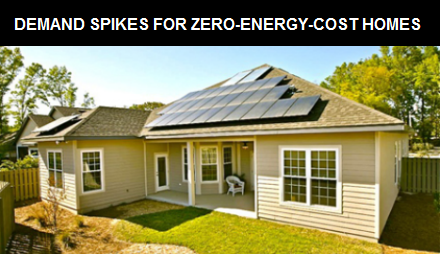Buying a home won't get much cheaper
Several
housing experts are predicting that this year will be the last chance
for homebuyers to cash in on the weak housing market.
NEW
YORK (CNNMoney) -- Buying a home may never get any cheaper than this.
Several housing experts are predicting that this year will be the last
chance for bargain hunters to cash in on the best deals of the weak
housing market.
With
home prices down 34% nationally
since 2006 and mortgage rates at historic lows, homes have never been
more affordable -- but it won't stay this way for much longer.
Stuart Hoffman, chief economist for PNC Financial Services (
PNC,
Fortune 500),
said he expects home prices to flatten out by the third quarter and start climbing by next year.
A
number of factors will help bolster the housing market, he said,
including a decline in the number of foreclosures and continued job
growth. In addition, homebuyers will have better access to mortgages as
they get their finances in order and improve their credit scores.
Some
economists, like Trulia's Jed Kolko, expect home prices to pick up even
more quickly. Trulia's data shows that the national average for asking
prices already increased 1.4% in the first quarter of 2012, compared
with the last three months of 2011.
"This
is a strong indicator that we will start seeing home price indexes,
like the S&P/Case-Shiller, start to report home price increases this
summer," he said.
Prospective homebuyers who've been sitting on
the fence shouldn't worry if they aren't quite ready to make the leap.
Analysts are predicting that the initial price gains will be modest, at
least, in most markets.
Hoffman, for example, is forecasting a 2% increase in 2013 compared with 2012.
Meanwhile
David Stiff, chief economist for Fiserv, predicts that prices will turn
in the last quarter of 2012 and will rise 4.2% for the 12 months
through September 2013.
Foreclosures start to fade. One
major factor that will drive the trend is the cooling of the foreclosure
crisis. Stan Humphries, chief economist for Zillow, said that the
percentage of mortgage loans 90 days or more late, a good predictor of
future foreclosures, is "falling fast."
That percentage
dropped
15% year-over-year to 3.1% through the end of 2011, according to the
Mortgage Bankers Association. And the decline is accelerating: More than
70% of the decline came in the last three months of the year.
Before things slow down, however, buyers should brace themselves for a temporary
spike in the number of foreclosures as banks start expediting the processing
of hundreds of thousands
foreclosures
that were stuck in the system following the robo-signing scandal. That
backlog should move more quickly now that new guidelines for processing
foreclosures have been outlined in the $26 billion
foreclosure settlement.
Many
of the bank-owned properties currently coming out of the foreclosure
pipeline are being snapped up by investors who are fixing them up and
renting them out -- often to those who were displaced by the foreclosure
of their own home. That has helped to lift prices on foreclosed
properties, according to Alex Villacorte, the director of analytics for
Clear Capital, which specializes in housing market valuations.
"That could have a significant impact on the market overall in terms of providing a rising floor to home values," he said.
In some markets hit hard
by foreclosures, the turnaround in prices is already underway.
Phoenix
recorded an 8.4% jump in home prices during the three months ended
April 30, compared with the three months ended January 31, according to
Clear Capital.
"It's crazy," said Tanya Marchiol, founder of Team
Investments, a Phoenix real estate investing firm. "Stuff I was selling
six months ago for $60,000 to $80,000 is now $90,000 to $110,000."
Miami saw a 4.6% increase quarter-over-quarter through April, and
Tampa, Fla., was up 4.4%, according to Clear Capital.
Goodbye 3.8% mortgage. In addition to home prices, mortgages could also move higher.
Mortgage
rates have been at or near historic lows for much of the past six
months. The average interest rate for a 30-year, fixed-rate mortgage has
not topped 4.5% since July 2011 and this week, it hit 3.84%, a new low.
But
rates aren't expected to remain at these record-low levels much longer.
As the economy continues to recover, rates will move higher, said Doug
Lebda, CEO of LendingTree, the online lending site. Although, he said,
they will "stay very reasonable."
The Mortgage Bankers Association is forecasting
that the 30-year fixed
will hit 4.5% by the end of the year.
Greater demand for loans will help fuel the increase, according to Lebda.
Even
though mortgage rates have been cheap, borrowing for home purchases has
been sluggish. The Mortgage Bankers Association estimates
that
homebuyers will take out mortgage loans totaling about $415 billion this
year, an increase of less than 3% compared with 2011. Next year,
however, it forecasts that amount will almost double to $706 billion.
As housing markets stabilize and prices stop falling, homebuyers will be even more confident about buying, said Humphries.
"People can now see the light at the end of the tunnel," he said. "And that can be enough to get them off the fence."





























